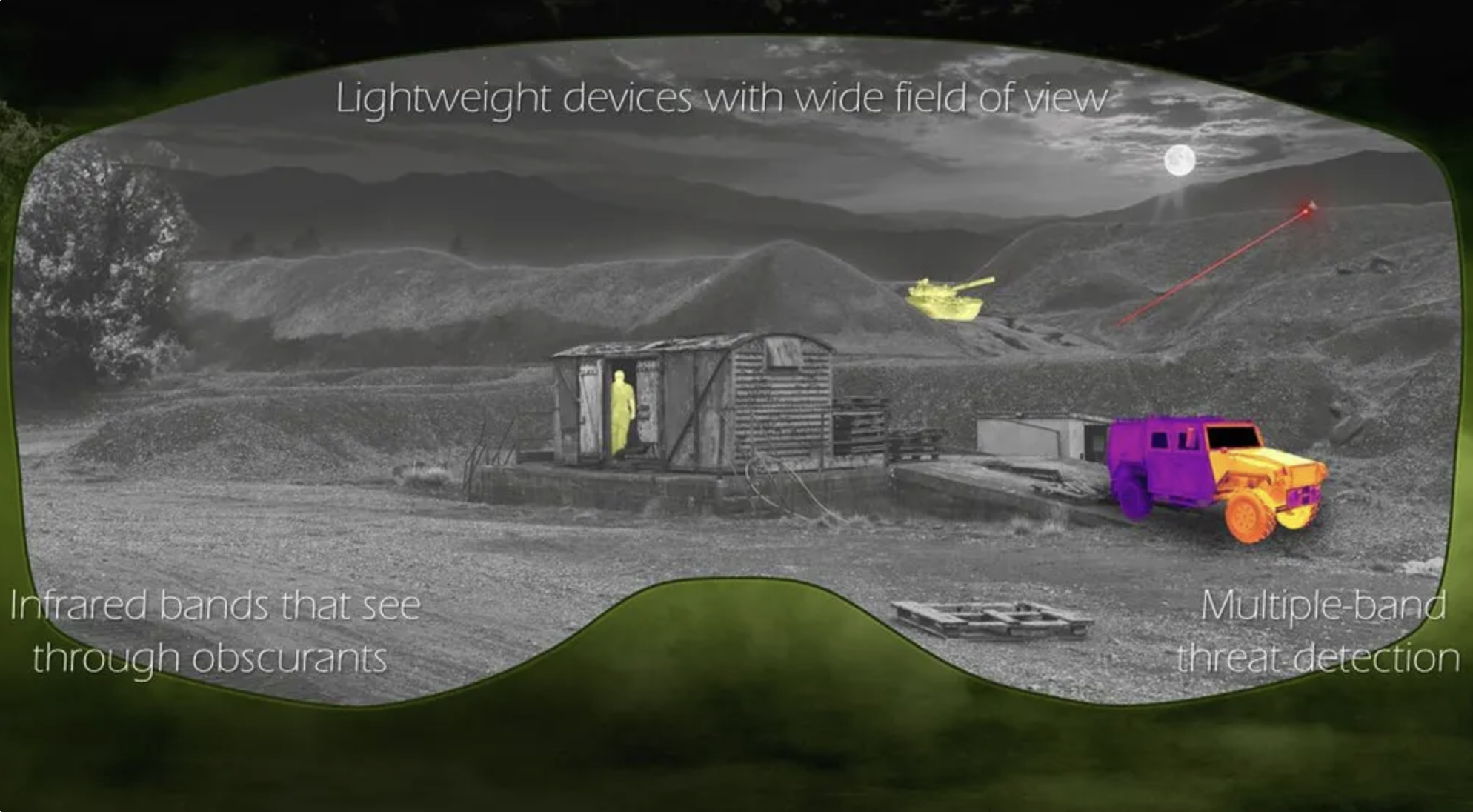
DARPA has awarded a $3 million contract to Raytheon BBN Technologies Corp. and a $2.3 million contract to UC San Diego for the Enhanced Night Vision in eyeglass form factors (ENVision) project. Researchers from both organizations will develop night-vision devices that are far smaller and lighter in weight than those currently in use.
The current night-vision goggles are typically 4 inches (10.16 cm) long and can weigh up to 2.2 pounds (~1 kilo). This leads to torque on the wearer’s neck, limiting their agility, and can lead to chronic injury over prolonged use. They have the added disadvantage of having a narrow field of view, and generally have limited spectral access to the near-infrared spectral band, limiting situational awareness.
DARPA’s ENVision program seeks to overcome these limitations by developing enhanced direct-view night-vision systems that are similar in size and weight to typical eyeglasses. Researchers at Raytheon BBN and UC San Diego will develop these small and lightweight night-vision eyeglasses to extend visual access beyond near infrared to include shortwave, midwave, and long-wave infrared spectral bands. This will give users access to spectral ranges from 1.5 to 12 microns. They will also seek to widen the user’s field of view to natural eyesight of about 100 degrees.
ENVision hopes to accomplish this by achieving direct vision of the infrared through photon upconversion. Direct photon upconversion involves the absorption of two or more photons and re-emission of a photon of higher energy. To date, this process has been limited in the bandwidth of light that can be upconverted simultaneously, but recent breakthroughs in material systems science show promise.
